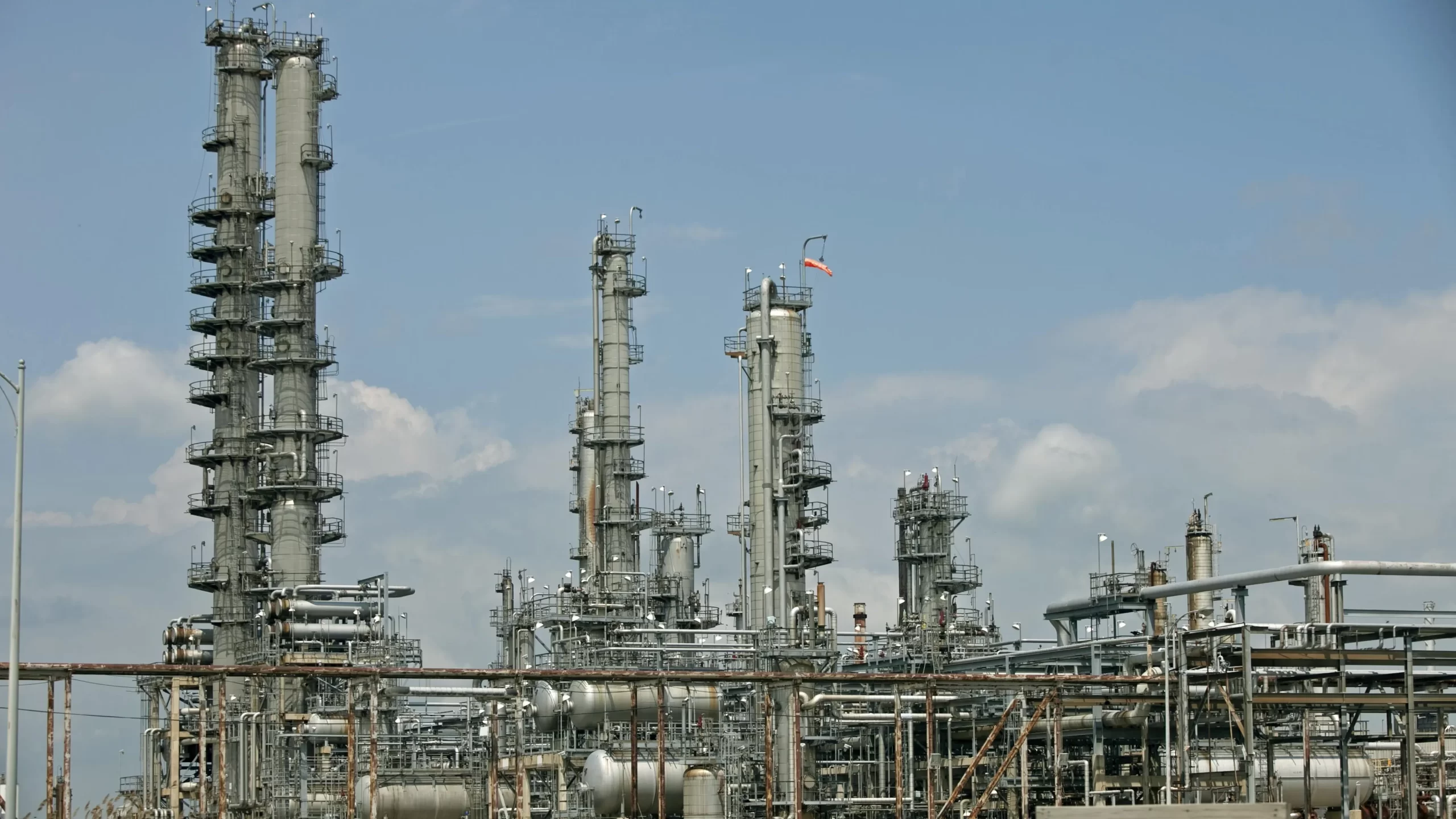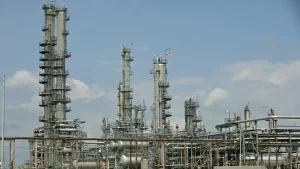
PHILADELPHIA, PA (Friday, April 11) – Yesterday, Clean Air Council filed a Dispute of the termination of a Environmental Protection Agency (EPA) grant which would have enabled the Council to respond to health concerns of Delaware City, DE communities by providing concrete services. The $490,912 Environmental Justice Collaborative Problem Solving (CPS) Cooperative Agreement grant was meant to establish air quality monitoring and help organize communities to study and protect themselves from air pollution emissions from the Delaware City Refinery.
On March 12, 2025, EPA notified the Council in a form letter that EPA had terminated the CPS grant without specifying which of several factors allegedly applied. The letter stated only that the grant allegedly:
“provides funding for programs that promote or take part in DEI initiatives or environmental justice initiatives or other initiatives that conflict with the Agency’s policy of prioritizing merit, fairness, and excellence in performing our statutory functions; that are not free from fraud, abuse, waste, or duplication; or that otherwise fail to serve the best interests of the United States. The grant is therefore inconsistent with, and no longer effectuates, Agency priorities.”
Approximately 400 federal grants around the country were similarly terminated.
“We are disputing this unlawful decision because we remain committed to fighting for the Delaware City communities served through this grant,” said Alex Bomstein, Clean Air Council Executive Director. “The communities around the Refinery have long endured health, economic, and social harms from the Refinery’s air pollution emissions, and we will do everything in our power to continue to advocate for their rights to clean air, pure water, and a livable climate despite our grant being wrongly terminated.”
The grant, welcomed by the community, promised to provide the following: (1) setting up air quality monitors; (2) analyzing the data with community members; (3) assisting in community organizing; and (4) helping residents and community organizations to develop emergency response plans in case of an emergency caused by the Refinery, such as an accident causing a sudden large release of toxic air pollution.

PHILADELPHIA, PA (March 12, 2025) Today, Clean Air Council received notice that our EPA grant to monitor air quality and protect residents from harmful pollution from the Delaware City Refinery (DCR) in Delaware City, DE was terminated. The project works to reduce health conditions like asthma and cancer that can be caused by air pollution from the DCR while also establishing a community-driven disaster response network in the neighborhoods surrounding the DCR in all directions, which could prevent potential harm to the health and safety of residents. The rationale EPA provided for canceling this funding is that it is inconsistent with agency priorities to support “programs or organizations that promote or take part in diversity, equity, and inclusion (“DEI”) initiatives” or “environmental justice initiatives.
Clean Air Council Executive Director Alex Bomstein issued the following statement:
“Environmental justice initiatives are critical to ensuring that everyone, regardless of their race, income, or background, has equal access to a clean and healthy environment. The termination of this program will have real life impacts for those in Delaware City being exposed to harmful pollution every day. Despite this termination notice, we are doing everything we can to continue this fight for Delaware City and all the communities we serve.”
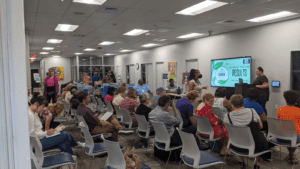
On Tuesday evening, July 30th, over 60 residents and key stakeholders gathered in-person at the Keystone First Wellness and Opportunity Center in Chester, with another 30 residents and key stakeholders joining via Zoom, to learn the key findings and recommendations of the ASSESS Community and Environmental Health Study of southeastern Delaware County.
The report included several key recommendations for policy makers such as:
- Enact environmental justice legislation that addresses and mitigates cumulative impacts.
- Prioritize community engagement, inclusion, and transparency in any decision-making processes that affect fenceline residents before facilities and infrastructure are proposed.
- Implement or expand air, odor, and noise monitoring programs in Southern Delaware County and develop mitigation plans as needed.
- Enact policies & programs that reduce pollution, crime & violence, and food insecurity; improve access to mental health services and green community spaces.
The ASSESS study is a collaboration of Marcus Hook Area Neighbors for Public Health, Clean Air Council, Johns Hopkins University, and community co-investigators. The study utilized a Community Based Participatory Research (CBPR) model in which residents were full partners in the design, implementation, evaluation, and publication of the study results.
The study aimed to address the impacts of pollution on physical, mental, and environmental health in southeastern Delaware County communities, along the I-95 corridor from Marcus Hook up through Eddystone. The study involved both a survey to collect data and a series of focus groups to better understand residents’ lived experiences. Both the survey questions and focus group questions were designed with input from community co-investigators, such that the study itself was tailored to the needs and issues that pertain to the community.
The report offered several key recommendations for policymakers, local leaders, researchers, and community organizers. One recommendation that got a lot of attention at the meeting was to push forward Cumulative Impacts Environmental Justice legislation that has already been introduced in both the House and Senate in Pennsylvania, but which to date has not moved forward.
“The ASSESS Study represents a significant opportunity for all community stakeholders—including elected officials, citizens, and activists—to work together,” said Thom Nixon, community co-investigator. “As highlighted in our town meeting on July 30th, the study provides a basis for advocating for new local and state-level laws addressing the cumulative impacts of multiple industries on overburdened communities. These industries, including petrochemical plants, have long histories of pollution affecting our land, air, and water in Southeast Delaware County.”
During the presentation, community co-investigators Thom Nixon, Kearni Warren, Echo Alford and Eve Miari, along with JHU researcher Sara Lupolt, shared some of the key findings of the study:
- Residents of southern Delaware County are overburdened by a combination of both chemical and non-chemical stressors. These “cumulative burdens” harm physical, mental, and environmental health in a myriad of ways.
- Symptoms of physical and mental health problems are far more widespread in the community than what has been diagnosed or previously documented. Residents are making a clear connection between their health impacts and the pollution, odors, and noise in their environment.
- Children in southern Delaware County are particularly vulnerable to the impacts of pollution, as well as the cumulative impacts of pollution and non-chemical stressors, such as economic insecurity, lack of access to affordable housing, food insecurity, violence and crime. Many more children in southern Delaware County experience symptoms such as coughing and wheezing than have medically documented asthma diagnoses.
- 95% of survey participants reported noxious odor issues that interfered with daily activities and quality of life.
You can see the full report for all key findings and additional recommendations here.
If you missed the meeting, you can still view the presentation slides.
What’s Next?
In the coming months, Marcus Hook Area Neighbors for Public Health and Clean Air Council will be working to develop an advocacy plan that will take the findings of the ASSESS study and put them into action. Please join us!
MHANPH meets regularly to discuss and address air quality issues, watershed protection, climate resilience, and environmental health in southern Delaware County. You can follow MHANPH on Facebook and Instagram and get on the email list to find out about upcoming events!
Clean Air Council, in partnership with MHANPH, is also in the process of launching an air monitoring program that will install outdoor air monitors at residents’ homes to collect real-time air quality data. Participants will be compensated for hosting a monitor. Check out https://cleanair.org/airmonitor for more information on the Council’s air monitoring program.

Philadelphia, PA (May 16, 2022) All neighborhoods in Philadelphia deserve green space. Climate change is here and it is having a disproportionate and serious impact on disadvantaged urban neighborhoods. That is not acceptable. Lack of resilience in such neighborhoods against the health and welfare threats of climate change must not be allowed to continue. While much of the harm is caused by climate change – the harm is also due to long time neglect due to institutional and systemic racism. Communities in Southwest Philadelphia, North Philadelphia and the lower Northeast deserve as much greenspace as Chestnut Hill and Lower Merion.
The former Philadelphia refinery represents 1,400 acres of transformative potential that could improve public health, provide local recreational amenities, and increase the city’s ability to manage stormwater and the rising Schuylkill river. Many city leaders and government officials simply assumed that the site would continue as a refinery or other heavy industrial use because of extreme soil contamination caused by 160 years of fossil fuel activity. That kind of short-term thinking is short-sighted and would have harmed the health and quality of nearby neighbors and frankly the greater Philadelphia region for generations to come.
Directly across the river from the former refinery, the Philadelphia Industrial Development Corporation (PIDC) is removing contaminated soil from previous industrial activity in order to extend existing recreational trails at Bartram’s Garden. That is a good step forward. We need more greenspace in the city and I applaud PIDC’s current effort to expand riverfront access along the Schuylkill.
Hilco, the new owner of the former refinery, should follow this lead and develop accessible, safe public greenspace at the former refinery site.
There is a theory among some planners that low income neighborhoods should limit their greening in order to prevent gentrification. That is not acceptable, it is not fair and simply ignores past racism. The City of Philadelphia has an obligation to protect local residents from the gentrification that often accompanies infrastructure investments in parks and trails.
Local residents are rightly concerned that expanded public amenities could accelerate already rising rents and property taxes. All Philadelphians deserve access to well-maintained, safe, and accessible greenspace without risking being displaced from their homes by income disparities. Increasing greenspace is a key strategy in mitigating the impacts of climate change such as flooding and urban extreme heat. Many studies have clearly established that greenspace improves positive mental and physical health. It is discouraging, but understandable, to see local residents feeling that they have to oppose the increased development of recreational infrastructure and other greenspace out of fear that it will raise their cost of living and ultimately displace them from their homes and communities. These fears are real, and must be addressed. In order to prevent development from increasing property taxes and rent in historically underserved communities of color, there are several necessary city policies and programs that can be enacted, and in some cases reopened or expanded.
Residents are currently witnessing property tax and rent increases caused by new development, while new property owners are protected by the 10-year new construction property tax abatement. Although ending the tax abatement was discussed in City Council, it remains in effect with 2022 applications subject to a gradual increase of property taxes over 10 years. This program began in 2000 and was intended to be a temporary stimulus for new construction. Over twenty years later this supposedly temporary tax incentive is still in effect. Approximately half of the property tax collected in Philadelphia is intended for the Philadelphia School District.
The City offers a Homestead Exemption available to all property owners that could reduce the taxable cost to a home owner by $45,000, potentially saving homeowners $629 in annual property taxes. Considering the much larger funds currently being lost to the property tax abatement, this program needs to be expanded. The current deadline to apply for the homestead exemption is September 13th, 2022. Apply now! This is also the early deadline for applications to the City’s Senior Citizen Tax Freeze Program. We need these programs to be expanded to target lower income households and residents also need more outreach staff to help navigate the application process.
The city has thankfully reopened Philly First Home, a previously closed program to assist first time home buyers. The program offers $10,000 grants to help new homeowners with down payments or closing costs. Reopening this program is likely the single most impactful effort the City could undertake to support residents attempting to build intergenerational wealth and establish anchors in their communities.
Philadelphia also has no current policy regulating rent increases while New York City and San Francisco have both administered successful rent control campaigns for decades. Landlords are still able to raise rent in these cities, it is simply limited to 5-10% of current rent. This is commonsense economic policy that gives renters confidence they will be able to stay in their homes, while also allowing landlords to account for inflation. Currently, new property owners have an extremely clear timeline when property taxes will be collected. Renters should be entitled to a similar assurance.
On top of existing economic pressures for current residents and tax breaks for new property owners, the City often does not enforce its own open space standards, making public parks and trails all the more necessary. Unfortunately, many Philadelphia neighborhoods in need of expanded greenspace are under immense pressure from housing developers who routinely request zoning appeals to avoid the city’s minimal 20-25% open space requirements for multifamily housing developments. Lack of greenspace puts increased pressure on aging homes during flooding events and further increases the difficulty of Philadelphia residents to stay in their often deteriorating homes.
The City of Philadelphia has acknowledged the existential threat of climate change, but has been slower to adopt economic policies that will protect residents as infrastructure updates and increased public amenities raise property taxes. The need for expanded parks and trails in this time of extreme weather cannot be understated. These public health and quality of life improvements must be accompanied by just economic policy that does not favor new property owners at the expense of existing residents.
For more information contact Russell Zerbo at rzerbo@cleanair.org

(Feb 07, 2022) Harrisburg, PA The start of a new year provides a unique opportunity to reflect on the past and plan for the future. 2021 was yet another stressful and difficult year for us all. COVID-19 continued to upend almost every aspect of life in America and around the world. In the United States, there seems to be increased anger and pessimism about the future.
For the last three years, I have not seen my Clean Air Council colleagues except through zoom. I really miss them. The Council continues to work remotely – the furthest remote employee is located in Montana! The Council has an amazing staff and I am so impressed by how quickly they adapted to remote work. On the other hand, it is sad how divided America was in 2021, and the bitterness between fellow Americans seems to be growing. But 2021 was also a year of optimism where long-established issues of social injustice started increasingly being addressed despite growing backlash towards change of any kind. Many Americans, businesses and nonprofits are still struggling to understand how to best move forward productively and with optimism. 2022 is a new year, and I pray that healing from the pandemic, economic downturn and our political divide can start early. It is also an election year in which I hope we all do our patriotic duty and vote.
This year will mark my 40th at the Council. At age 67, I still do not want to leave my beloved organization and its critical mission. But I also recognize that sometime in the not far future some young, eager, much more talented person will take my job and continue to grow the Council. One of the issues that the Council staff and board are working on is how to ensure a smooth transition when the time comes for me to retire.
The last few years have been hard for environmental protection. The Trump administration rolled back many of the baseline federal environmental protections that the Council worked for years to secure. At the state level, there were some victories and some defeats. In the last couple of years, Pennsylvania has seen some progress in addressing climate change, yet state elected officials continue to promote policies and subsidies that support the fossil fuel industry. The Council’s top priority is to get the United States and all 50 states to move forward in a meaningful way to address climate change. This requires getting Pennsylvania’s elected leaders to understand the great environmental and economic opportunities provided by the green economy.
The Council has had many achievements since 1967 – when the organization was first created. Today we know so much more about our environment and the devastating impacts of fossil fuel extraction and combustion, which directly fuels the climate crisis and causes devastating public health harms. We know climate change is not only real but already causing serious damage throughout the country and in many Pennsylvania communities. And yet Pennsylvania leaders at all levels of government – while paying lip service to the issue – continue to promote fossil fuel expansion.
I have some optimism that at the federal level we will see some progress in lowering greenhouse gas emissions. But those efforts will likely not be enough, nor will they reflect the amount of reductions needed in the relatively short timespan dictated by the science. In Pennsylvania, now the second largest fossil gas producer in the US, methane and other pollutants endanger the health of residents throughout the state . Meanwhile, new pipelines are tearing through our communities, and irresponsible drilling has resulted in hundreds of spills, tree clearing, seriously harming local communities, and local ecosystems. Yet the state seems to refuse to adequately penalize chronic bad polluters. The state fines them at a level that amounts to chump change for multi-billion dollar companies. Many of these companies have forfeited their social license to operate in Pennsylvania and their permits need to be revoked.
Having chosen to be an environmental advocate in Pennsylvania, I have no choice but to be an optimist. I believe 2022 will offer new opportunities to block the growing anti-environmentalism among many of our elected officials. Pennsylvanians overwhelmingly want clean air, clean water and protected open spaces. In fact, it is guaranteed in Pennsylvania’s Constitution by the Environmental Rights Amendment (ERA) and, thanks to groups like Clean Air Council and others, Pennsylvania’s Supreme Court has reinvigorated the ERA and ruled that our fundamental environmental rights are enforceable and protected by law.
We have a lot to do in the coming year and, thanks to our supporters, I am convinced we’ll make great strides. Here are the Council’s priorities for 2022:
Work with other environmental groups to overturn the Trump Administration’s rollbacks of federal environmental laws that protect public health and the environment: The Biden administration is still politically moderate but does support moving forward on addressing climate change and using good science in policy development and rule-making. It represents a sea change from the disastrous prior administration and, believe it or not, represents the most aggressive climate policy approach from any White House in history.
Ensure enforcement of rules and regulations that protect public health, quality of life and preservation of ecosystems in Pennsylvania: Pennsylvania is a state that has always been welcoming of extractive industries. Over the last few years, the General Assembly has deliberately underfunded the Department of Environmental Protection so that it cannot fulfill its constitutional obligation to protect public health and the environment through rigorous permit reviews, enforcement of existing laws and regulations, and monitoring of potential polluters.
Pennsylvanians continue to see proposals for new, gigantic gas-fired power plants and pipelines that offer no real benefits to the people of Pennsylvania and will seriously degrade the environment. Groups like Clean Air Council are left to pick up the slack. We are up to the task and are ready to support residents and local groups across the state in raising concerns about proposed fossil fuel projects. The Council has no fear of suing the DEP or any industry if needed to protect public health and the environment. The Council also willingly lends our expertise to DEP as the agency develops and proposes new regulations. Finally, the Council will continue to work with local governments throughout Pennsylvania on developing ordinances that limit where polluting sources can be sited in order to protect public health and fragile ecosystems.
Give voice to environmental justice communities impacted by pollution: It is no secret that some communities are more impacted than others when it comes to being asked to host polluting facilities. Working to bring environmental justice to these communities is a top priority of the Council. The Council’s community organizers, engineers and lawyers help residents ensure that their voices are heard. As one example, the Council’s engineers have developed accurate, low-cost air monitoring devices, designed to be loaned to communities, so concerned residents can monitor air pollution levels where they live, or where their children go to school. The Council, working with local community members, forced Sunoco to reopen its public input process to ensure that community members would have a voice in how the old refinery site should be cleaned up.
Promote the green economy: We need to rapidly shift away from using fossil fuels. The history of fossil fuel extraction in Pennsylvania has left a terrible toll on our state’s environment. I am proud that Clean Air Council is working with local governments big and small throughout Pennsylvania to support them in their move to increase energy efficiency and renewable energy in their communities. The Council will continue to fight against state and local barriers that stand in the way of expanding solar and wind power in Pennsylvania.
Reduce pollution from the transportation sector: Pollution from the transportation sector is a leading cause of air pollution and greenhouse emissions. COVID, in a perverse way, encouraged people to work from home and exercise outdoors. More people were riding bikes than ever before and enjoying the outdoors as pedestrians. As people return to work, though, they are more likely to go back to driving alone, and we will see increased pollution from the transportation sector. Even if people choose to stay remote, more people ordering packages for home delivery will increase demand for diesel fuel to transport goods in heavy-duty trucks. The Council will continue to work at the state and local level to help public transportation recover, expand bicycle and pedestrian facilities, and make it easier to get around without a single-occupancy gasoline-powered car. The Council is involved in working with policy makers and industry to build out electric vehicle infrastructure in an equitable way.
The Council depends on support from the public for all the important work we do. I love hearing feedback from our supporters on how they think the Council is doing, and about more ways we can help protect your right to a healthy environment. Please reach out to members@cleanair.org, and I will look forward to reading your feedback and suggestions!
Sincerely,
Joseph Otis Minott, Esq
Executive Director and Chief Counsel
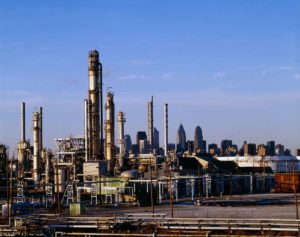
July 7, 2021 – The City of Philadelphia was one of the country’s first industrial hubs. While much of its large polluting industry has diminished over the years –there are some facilities that still emit toxic air emissions that impact public health and the environment. Generally federal, state and local governments have done a poor job of protecting public health from hazardous emissions that can cause cancer and other serious health problems. Yet we must come to grips with this most serious type of public health threat from air pollution. This is particularly true of communities that live in deep poverty and already suffer from poorer public health outcomes. The city of Philadelphia has more people living in deep poverty than any other large city in the United States.
Regulating toxic air pollution has proven to be particularly difficult to regulate since there is often no absolute safe level for an air pollutant that causes cancer or neurological damage. The only 100% safe solution would be to shut down all sources of toxic pollution from large factories, smaller industries such as dry cleaners and gas stations, and cars and trucks. Often the regulations of toxic air emissions are not based on the actual health threat but rather on what technology exists to lower emissions while still allowing the industry to operate.
The Council has long advocated that the city develop regulations to limit emissions of toxics based on public health impacts. The state and federal government should also. In Philadelphia air regulations are adopted by the city’s Air Pollution Control Board. (APCB). Air Management Services (AMS), a part of the Philadelphia Department of Public Health drafts the proposed regulations with input from city lawyers for review and adoption by the APCB.
In 2019, working with the APCB and groups like Clean Air Council, AMS announced that it would amend and strengthen its Air Management Regulation VI (AMR6) which regulated air toxics.
The proposed amended regulation would call for all new Title V (major source) permits and renewals to go through a risk screening process. If the risk from a particular pollutant went above a certain threshold it would trigger a risk assessment and the facility would have to show that it can lower its emissions and reduce harms to the impacted community in order to continue to operate in the City. If the facility could not properly do this, it would be denied its operating permit. It was a game changer. It is difficult for the city to adopt stronger regulations than the state or federal government for fear of making its businesses anti competitive. But both AMS and the APCB were interested in looking at this new approach to reducing air pollution risk in the City.
The Council has been actively pushing for such an approach to toxic pollution for many years. The proposal to amend AMR6 comes on the heels of New Jersey’s recent adoption of a similar law in late 2020. Pennsylvania should follow suit. This law requires that the New Jersey Department of Environmental Protection (NJDEP) to assess the public health and environmental risks that facilities renewing or amending licensing permits create for overburdened communities (low-income communities, communities of color, or communities with limited English proficiency).
The Council is pleased that Philadelphia is moving to better regulate the threat from toxic air pollution but is urging it to go further than what is proposed. The Council has urged the APCB and AMS to take up this opportunity to further decrease the risk thresholds and to look at the aggregate risk posed by multiple pollutants and multiple facilities so that it is more protective for the City’s residents, especially the most vulnerable — its children, elderly, and those with preexisting conditions.
The APCB has an opportunity to pass a regulation more protective than that of New Jersey and set a standard for Pennsylvania and large cities to follow.
For more information contact John Lee, Public Health Director, jlee@cleanair.org.
Along the Delaware River in the southern part of Delaware County refineries and incinerators have been poisoning the air for decades, negatively impacting residents’ health and quality of life.
On Saturday, June 26, residents of Chester, Marcus Hook, and surrounding Delaware County communities welcomed participants of the “Walk for Our Grandchildren” into their neighborhoods to draw attention to local environmental justice and public health issues. The Walk for Our Grandchildren included several dozen grandparents walking from Scranton, PA to Wilmington, DE over the course of a week to highlight the impact of the fossil fuel industry on local communities, and to call on the Biden administration to take stronger actions to address climate change.
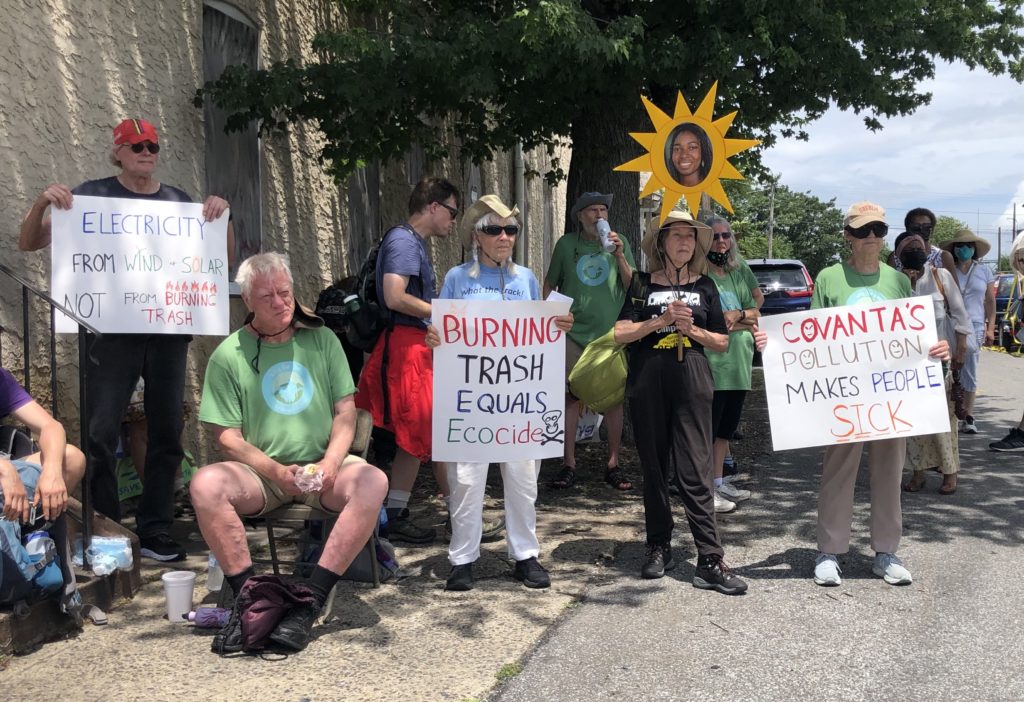
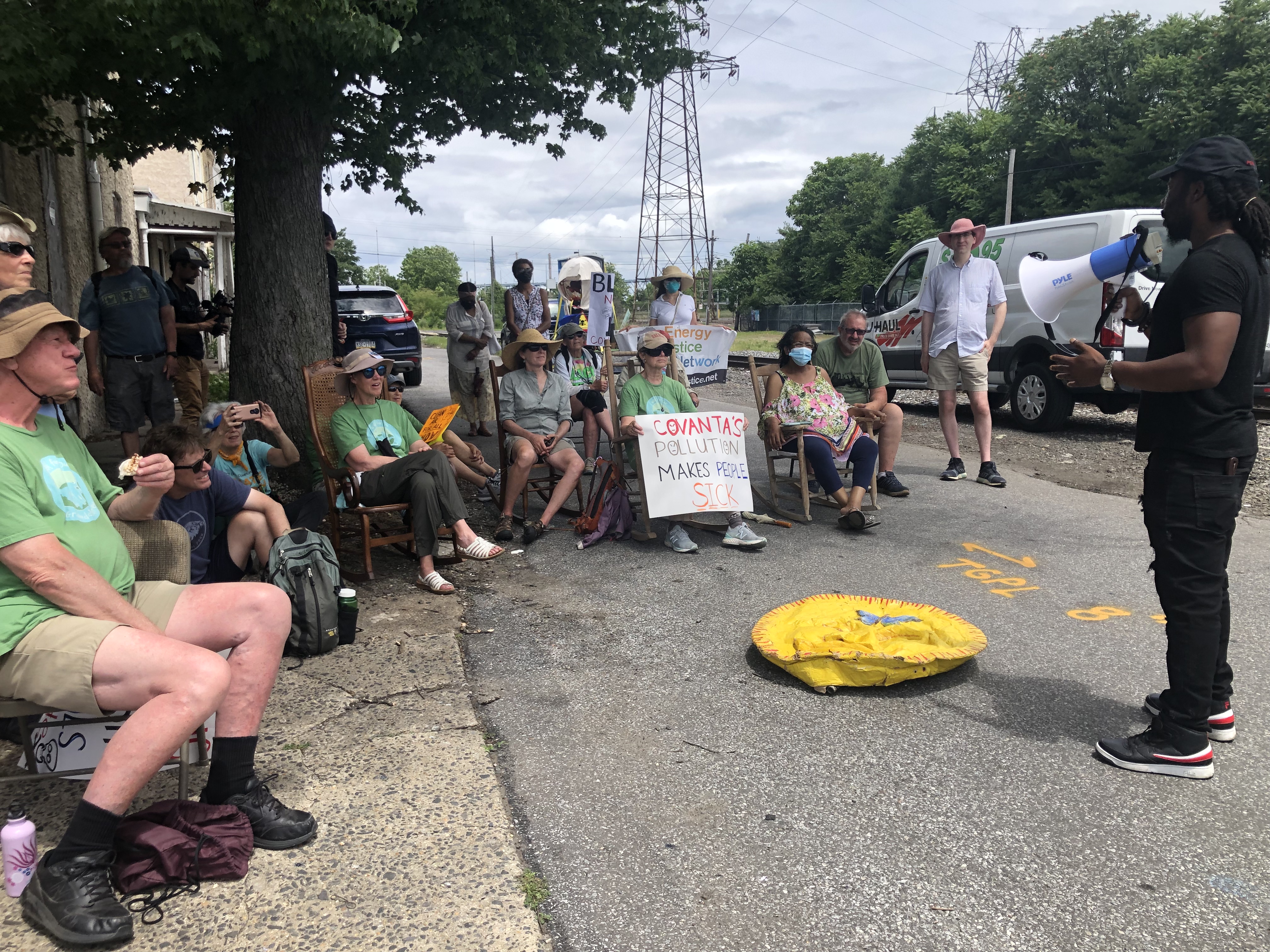
Members of the Chester Residents Concerned for Quality Living (CRCQL) group greeted the walkers at the gate to the polluting Covanta waste incinerator in Chester. There, community leaders from Chester shared their personal stories, including being forced to abandon their homes adjacent to the facility, the persistent noxious odors, and high rates of asthma, particularly among children. CRCQL leader Zulene Mayfield, who has been fighting environmental injustice in Chester for decades, shared the history of how the toxic Covanta facility was deliberately placed in Chester, a predominantly Black community.
“We welcome the support of the Walk for Our Grandchildren to highlight the issues that we have been facing here in Chester for years,” Zulene Mayfield stated, “The toxic Covanta incinerator is one of the most egregious examples of environmental racism in the country, and we call upon the Delaware County Council to end its contract with Covanta so that our children and families can breathe.”
The grandparents then traveled to Marcus Hook municipal park overlooking the Delaware River, where they had a clear view of the INEOS ships transporting ethane from the processing plant in Marcus Hook to Europe to be manufactured into single-use plastics.
Members of Marcus Hook, Trainer, and Chichester Residents for Public Health spoke to the many impacts to public health and safety that have resulted from the Sunoco / Energy Transfer Mariner East pipelines and the Marcus Hook Industrial Complex. Residents expressed a need for more information, education, and community wide awareness of the links between pollution and health impacts.
“Our fight in Marcus Hook is to make residents aware of the health issues and what they can do about them,” said local resident Lorraine Daliessio, “We have an Environmental Advisory Council made up of both residents and refinery representatives but many residents are not aware of the part they can play, or even that the EAC exists. We need awareness.”
Residents in both Chester and Marcus Hook, as well as surrounding communities such as Trainer and Upper and Lower Chichester bear the brunt of the pollution impacts from the refineries and incinerators along the Delaware River in the southern part of the County. In all of these communities, residents are holding out hope that the newly formed Delaware County Health Department will help to analyze the impacts of pollution on public health in these communities, and that change may finally come after decades of injustice and harm. The Clean Air Council has been supporting these community organizing efforts through our outreach, advocacy, and legal work.
Eve Miari, Advocacy Coordinator for Clean Air Council, added, “Residents in communities impacted by toxic air pollution are coming together and saying loudly and clearly, we have had enough. Enough environmental injustice, enough environmental racism, enough prioritization of private profit over public health. We have a right to clean air, pure water, and a healthy environment. We have the right to breathe.”
For more information contact Eve Miari, Advocacy Coordinator, emiari@cleanair.org

The toxic legacy contamination at the shuttered Philadelphia Energy Solutions refinery is extensive and will require a robust cleanup based on appropriate standards.
In Feb 2020, the Department of Environmental Protection (DEP) proposed a revision to allow for higher concentrations of lead in surface soil at nonresidential properties, including those used for industrial and commercial purposes like the former Philadelphia Energy Solutions refinery site. Pennsylvania requires those cleaning up contaminated property to meet this public health standard. DEP proposed to increase this value for lead in soil by two-and-a-half times.
Clean Air Council wrote technical comments to argue against this because it would not be protective of public health, and got over 450 of our members to oppose it. The Council made the argument that the DEP should be using more protective assumptions to calculate the lead standard. After all of this public pressure, the DEP announced it will not increase the standard as proposed. This is very important to the ongoing remediation of the PES refinery site because Evergreen, the Sunoco subsidiary responsible for remediation, has stated it would follow DEP’s lead on this standard.
In addition to raising concerns about DEP’s proposed changes to its statewide standard for lead in soil, the Council also reviewed extensive reports about environmental contamination of the former refinery site and submitted technical comments in January. In the comments, the Council urged Evergreen to lower the lead standard, consider climate change impacts like sea level rise, improve its analysis of groundwater pollution, and include additional toxic chemicals used in fire fighting foams in its investigation. Council staff reached out to organizations and residents in neighborhoods surrounding the site to ensure they knew about the comment period and had everything they needed to submit a comment. The Council recruited a dozen groups and over 330 nearby residents to submit comments.
On a recent virtual public meeting, Council staff asked Evergreen to recommit to following DEP’s direction on the lead calculation and a representative agreed. This will greatly increase the number of locations at the site that must be addressed during remediation. In addition, Evergreen also publicly agreed to consider climate change impacts to the site, and additional toxic chemicals. These concessions are a huge win for public health in Philadelphia.
While groundwater remediation has already been going on at the site for years, a more extensive remediation will begin in the coming years and there is a new 2030 deadline for Evergreen to meet the cleanup standards. As Evergreen completes its environmental investigation, the Council will ensure the cleanup protects public health of Philadelphia residents as much as possible.
For more information contact Matt Walker, Community Outreach Director, at mwalker@cleanair.org.
